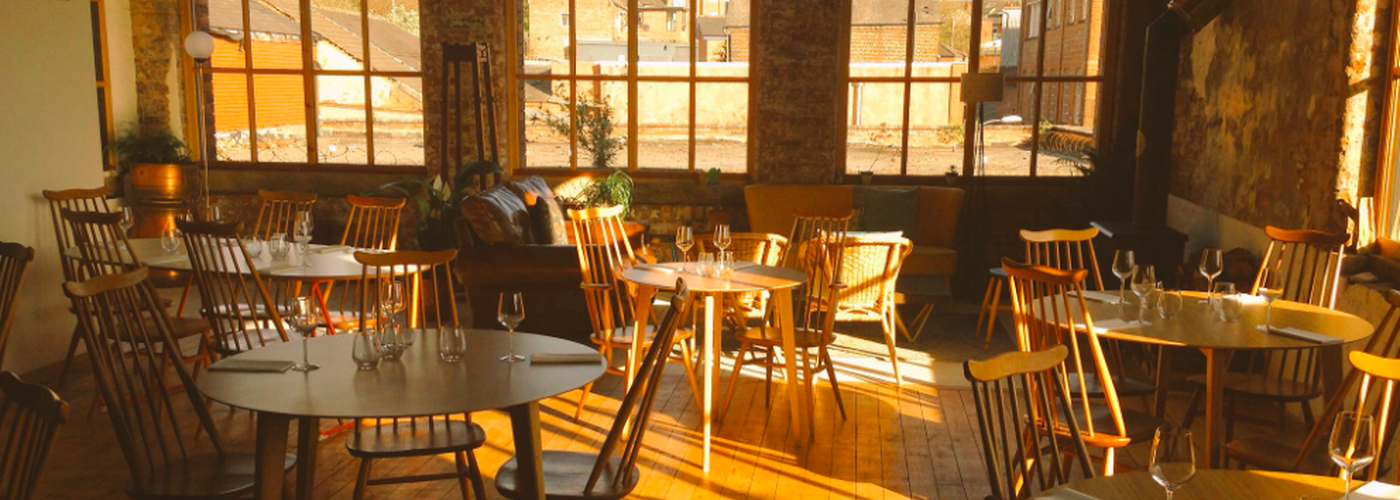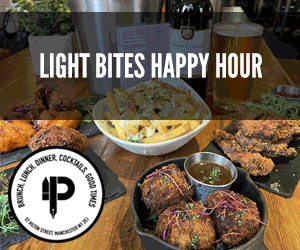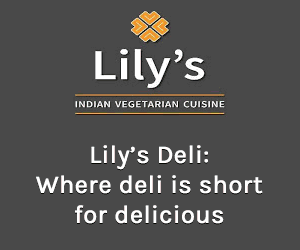This chef once 'lived off tinned soup and boiled eggs'. Now he forages for burdock root and serves it with frozen cheese. Welcome to WTLGI.
In 2016, Sam Buckley quietly opened Where The Light Gets In, a restaurant he pretty much built by hand, down a cobbled alley off Stockport’s unassuming market square. It’s been turning heads ever since.
There is no menu or wine list to speak of, rather ‘a dining experience from the day’s catch, harvest and slaughter’. Basically, you get what you’re given. For some diners, this might be a scary prospect, putting their meal entirely into the hands of the chef, but the success of the restaurant has shown that the idea is not just working for them but really working for them. One national critic recently called it the ‘most exciting meal’ they’d eaten in years. As you’d expect, you now need to book well in advance to get a spot in this 50 cover space.
Buckley has worked in elite kitchens with the likes of Gary Rhodes, Paul Kitching and Simon Rogan, but he is just as comfortable bumming around Asia with a backpack, playing bass guitar or foraging in the local woods for weird and wonderful ingredients.
I am always grateful for our guests’ trust. They pay to come here without an idea of what they will eat
You honed your skills at L’Enclume, the number one restaurant on our Top 100 list. What was the most important thing you learned there?
SB “I learnt that simple cooking techniques could be a gateway to more complex flavour combinations. I learnt that utilising the environment around you could enhance content, and I learnt that one must not take things for granted and that communication can make an environment a happier place to be.”
You don’t make a big deal of awards or acclaim. Do such things matter to you?
SB: “We are focused on our own internal missions. We strive to be the best we can be in the ways that we think matter but I think these ambitions can be marred or confused, even compromised if you utilise the criterion of outside organisations who have their own agendas in mind.”
When you first opened in Stockport, you said you wanted time and space to grow and evolve. Did you worry about the location at first? In what ways have you evolved?
SB: “I am always worried about being in Stockport but at the same time we really enjoy being part of the community here and more and more try to have a part in its growth.
“Our evolution has been pretty good so far I think. We now have a huge team with members coming from all over the world to be here, and an acre farm in a beautiful part of the peak district. We have learnt more about who we are and the style that carries us forward and in three months we are opening a bakery. Things are moving fast all the time.”
With no menu you operate on a ‘get what you’re given’ basis. How do your customers cope with that?
SB “My grandma always told us ‘you get what you’re given’ but it rarely worked on me. I was a fussy child, I basically lived off tinned soup and boiled eggs. I am always grateful for our guests’ trust. They pay to come here without an idea of what they will eat. Thankfully most leave feeling great about the experience. But we have to be thankful about the trust.”
On your website you talk about ‘the native ingredients of a lost island’ – I assume you mean Britain. Why is it ‘lost’?
SB “By that, I think I mean our culture, or certainly our food culture and the conventions involved such as family meals and mealtimes in general. Our knowledge and interest in food as a society seems to be minimal. Are people willing to put a higher value on food, on what they feed into their bodies and the bodies of their loved ones, on the one thing that keeps them alive? If people are willing to spend a little more time, effort and money on their food for a reward of a healthier body, mind, and community then we will see a change. This is what I see as broken.
“It is causing our bodies to break (as in obesity and diabetes), our culture to break (as in family values and education), and our local economies to break (as in corrupt trade links to industrial food systems offshore). Food, whether we like it or not, is integral to shaping our existence as a species and a society.”
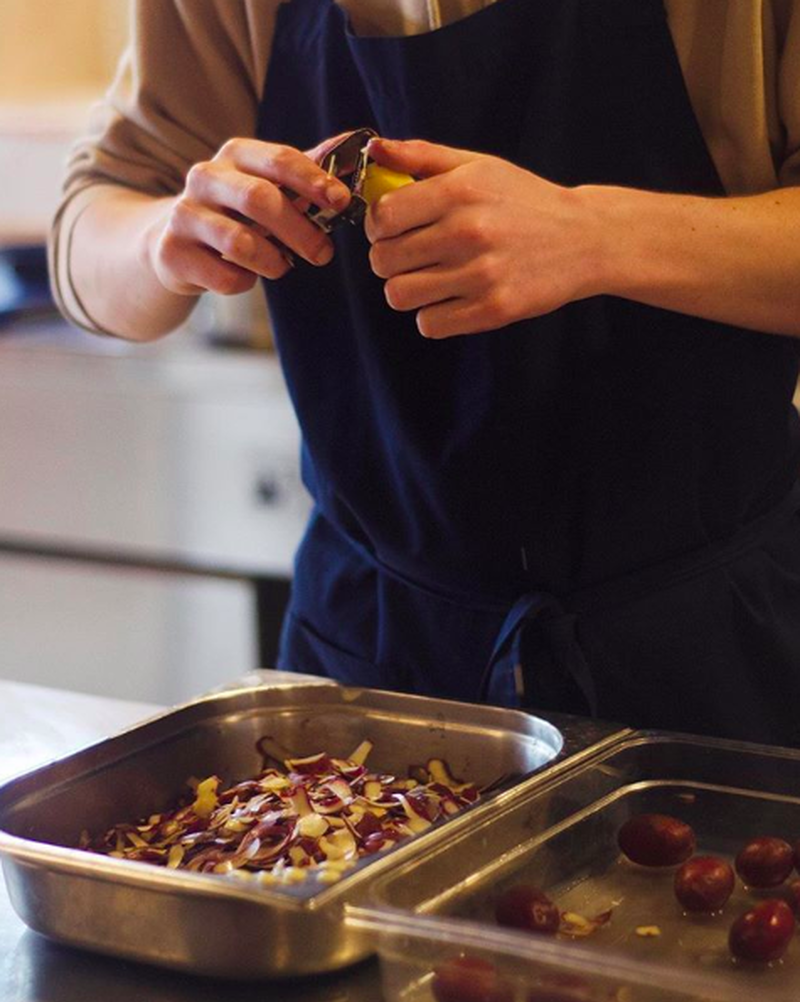
What did you learn from your travels in India and Asia?
SB “I learnt about resourcefulness and community. You can cook the tastiest food with nothing more than a cart and a gas bottle and be a pillar of the community. But also going back to the last question, that is because most countries in Asia hold food in high regard. They respect its importance, its power, and as so, have a ritualistic relationship with it. It binds.
“I think it is important for anyone to do the thing they think will help them to understand whatever it is they do better. If it’s traveling for a chef, so be it. If it’s going to work on a farm or cooking on all levels from school meals to Parisian three star, fine. I like to travel for more reasons than food. Although it is food and drink that seems to lead me into the best adventures!”
You forage many of your ingredients, when did your interest in foraging begin? Isn’t it a bit risky?
SB: “Foraging was a precursor to agriculture, it’s part of who we are. I try to include as many correctives into my repertoire as possible. So it was, literally, a natural move. I once ate yew by mistake. Actually, that was on opening night here. I had to purge myself pretty hard.”
Good grief! That’s suffering for your art. Isn’t coming up with a new menu every day a bit panic-inducing? Do you ever draw a blank? How do you remain inspired?
SB: “We don’t change every day. The menu evolves, swapping one ingredient for another due to seasonality, or one technique because of a creative discussion. My main inspiration these days is on the farm. Going down there, you see everything at once and all of the potential of a year’s growth. It gives the confidence to write a veg driven menu because of the work put in and the excitement of watching things grow. You really start to respect veg as a main ingredient. Also, the conversations we have in the kitchen are invaluable, what we ate over the weekend, what we can do with this waste product or that by-product, what’s coming through from the ferment lab…”
Sustainability is a hot topic at the moment. What do you think restaurants can do to be more sustainable, and are these kinds of adaptations, er, sustainable for the businesses themselves?
SB: “We should, in any industry we work in, do so with a sustainable attitude. But that is a buzz word right now and one that we have to constantly ask the definition of. It’s not just about not throwing away your scraps but it’s keeping a team happy in their roles and responsibilities. We must educate and give skills that will make our team go on to create their own ideas with confidence. We must try to work in the community and make relationships with people that won’t get the chance to eat here. We must sustain our business by finding ways to maximise our output.
“Sustainability means to be maintained at a certain level or rate. If we are a business in a community, drawing from nature and feeding back into that community and nature then we are responsible to keep all of that going at a certain pace.”
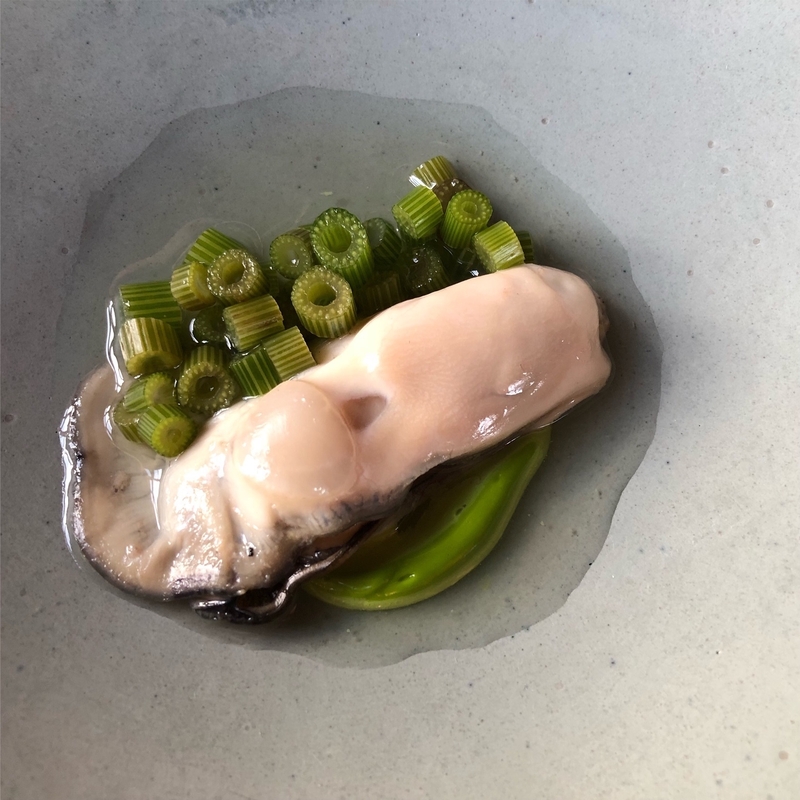
You don’t really pander to anyone’s dietary preferences, with only a pescatarian alternative offered daily. Is this something you might do more of in future, especially with the rise of veganism?
SB: “We have decided to put on a vegetarian night in response to the produce we will get from the farm at that time. The dinner seems like it is a success. We have a waiting list and may choose to run another one in the future. It is also a great challenge for us and we revel in a culinary challenge.”
Finally, where are your favourite places to eat in the North West at the moment?
SB: “Moorcock in Yorkshire, Umezushi in Manchester, Bundobust in Manchester. I am in awe of the immigrant food scene here in Manchester, it’s one of the best I’ve ever witnessed. From Chinese, Turkish, Pakistani, Irani we have a rich choice and I think it’s our strongest asset.
Sam Buckley's quick fire 5 x 5:
5 pieces of kitchen equipment you couldn’t live without
SB: “Funnily enough I have 5 top chefs.”
5 essential spices, herbs or flavours
SB: “That’s tricky, that’s like five favourite albums, flavours come and go, its why they’re called flavours.”
5 quick dinners you make at home
SB: “I rarely cook at home but anything in my big Le Creuset. So, fish stews, casseroles, pot roasts, etc. I love cheese and toast with sriracha, scrambled eggs in the morning, I’m out of ideas, I generally eat out.”
5 favourite cookbooks
SB “I love collecting microwave cookbooks from the eighties, they’re hilarious and a good watershed of what was ‘posh’ back in the day.”
5 words that should never appear on a menu
“Assemblage, oozing, smothered, ’kids eat free’, facon.”
Find out more about WTLGI on our Top 100 guide here.




